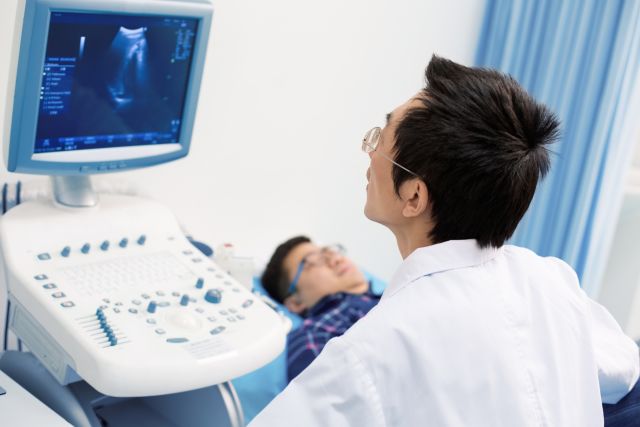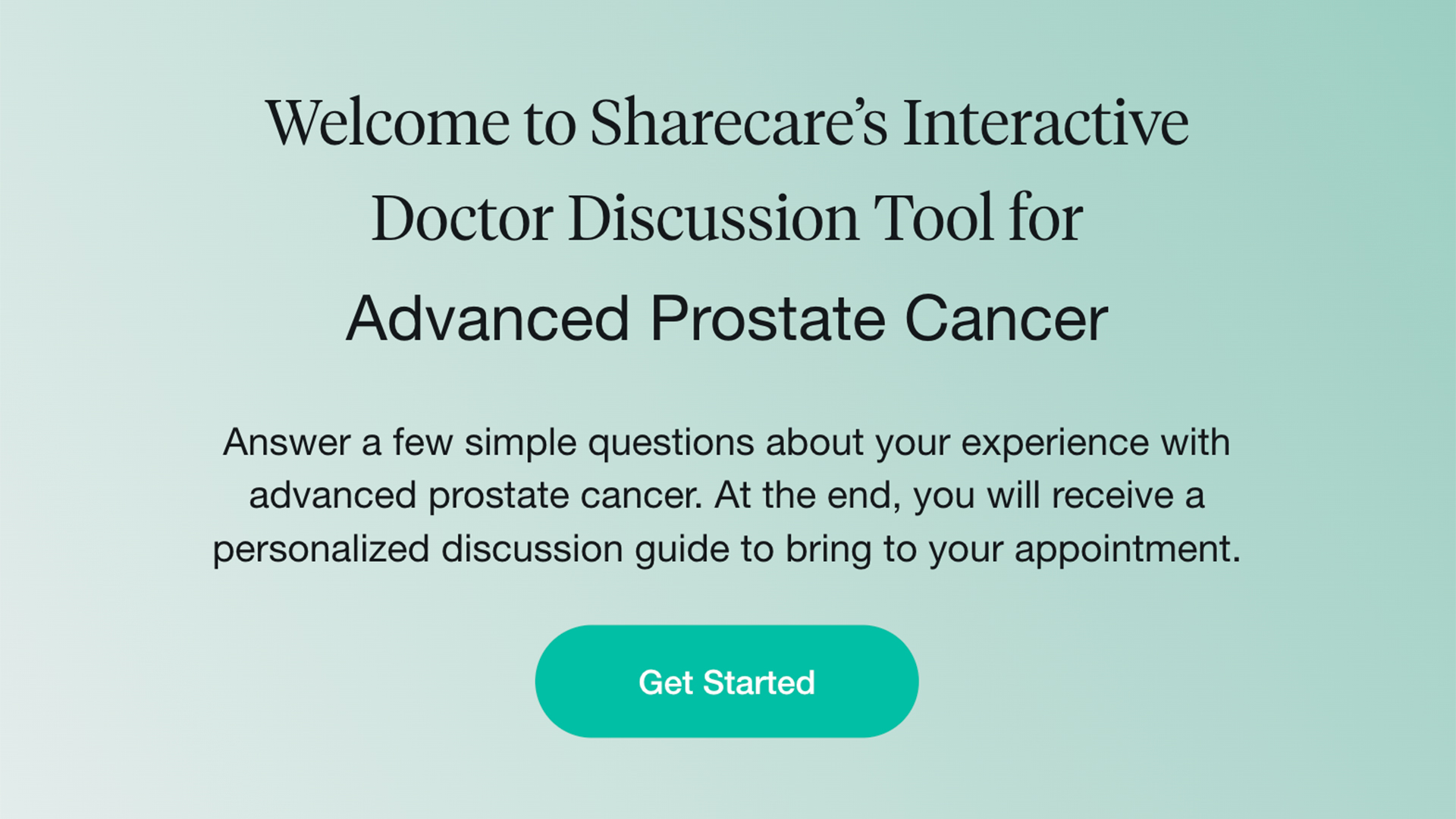Prostate cancer is the second most common cancer among men in the United States. In fact, the American Cancer Society predicts that nearly 248,500 men will be diagnosed with prostate cancer in 2021 alone. In many cases, those with prostate cancer show no signs, and for others, the cancer grows so slowly it never becomes a problem.
Urologist Marklyn Jones, MD, at Presbyterian/St. Luke’s Medical Center explains the prostate cancer facts.
What is prostate cancer?
The prostate is a walnut-sized gland that helps make some of the fluid in semen. It’s located below the bladder and in front of the rectum. Urine and semen travel through the prostate, via the urethra, into the penis and then out of the body. Only men have the prostate gland.
Prostate cancer forms when the prostate gland cells grow uncontrollably. These additional cells form a growth or tumor. Some prostate cancer is slow-growing, but some may be aggressive. The most common type of prostate cancer is adenocarcinoma. There are also rare types of prostate cancers such as sarcomas, small cell carcinomas, transitional cell carcinomas and neuroendocrine tumors. Together, these types of cancers only occur in about 1 percent of men.
Who’s likely to get it?
One in eight men will be diagnosed with prostate cancer in their lifetime, and there are certain factors that can increase a man’s risk for the condition.
A prostate cancer diagnosis before the age of 40 is unlikely. However, your risk increases after age 50, and especially after 65. Men with a family history, especially a brother or father with prostate cancer, are at higher risk of developing the condition. African-American and Caribbean men of African ancestry have a higher chance of prostate cancer, too.
Inherited genes like BRCA1 and BRCA2 mutations may also raise a man’s cancer risk, says Jones. The BRCA1 and BRCA2 genes are supposed to produce tumor suppressor proteins that help repair damaged DNA in your body. When they are mutated or altered, this reparative process doesn’t always happen correctly.
More research is needed, but some studies show that obesity may increase a man’s risk for more aggressive prostate cancer as well.
Are there any symptoms to look out for?
It’s extremely rare for men who are in the early stages of prostate cancer to have symptoms. And even those who have advanced prostate cancer may have no signs at all. Men who do have symptoms commonly experience:
- Difficulty or pain during urination
- Frequent urination
- Pain or stiffness in the lower back, hips or upper thighs
- Pain during ejaculation
- Erectile dysfunction
- Blood in urine or semen
These symptoms usually indicate another health condition other than prostate cancer, such as benign prostatic hyperplasia (BPH), a non-cancerous growth of the prostate, or prostatitis, an inflamed prostate. If you have any of these symptoms, you should see your healthcare provider (HCP) right away to get a proper diagnosis.
Talk to your HCP about screenings
The controversy surrounding prostate cancer screenings is ongoing. One study shines light on whether to treat the early stages of prostate cancer. The study, published in The New England Journal of Medicine, found no significant difference in death rates in men in the early stages of prostate cancer, who were randomly picked to have surgery, radiation therapy or to rely on active monitoring of the cancer with further treatment if the cancer progressed. Death rates in men who opted for monitoring the cancer rather than those who opted for early treatment were still very low. In fact, only 1 percent of people died 10 years after being diagnosed. The study shows that, while the screening debate is ongoing, it remains a choice between a patient and their HCP.
Getting tested for prostate cancer can save your life if early-stage cancer is found. But if you’re diagnosed with a slow-growing cancer you might worry without reason or receive treatments you don’t need.
The main type of prostate cancer screening test—called a prostate-specific antigen (PSA) screening—can often produce false-positive results that can lead to follow-up tests such as biopsies, which have risks associated with them. And PSA screenings can also lead to overdiagnosis of harmless cancers that never would have needed treatment. Taking all of this into account, the U.S. Preventive Services Task Force (USPSTF) now says that men age 55 to 69 should have an informed discussion with their HCP about the risks and benefits of getting screened.
“In my opinion, all men should have an initial baseline PSA between the age of 40 and 50 after an informed discussion with their physician about the risks and benefits of PSA screening,” says Dr. Jones.
After your screening, you and your HCP can determine the next steps based on your initial PSA level. “The frequency of continued screening can be prioritized based on the initial PSA and the patient's risk factors for developing prostate cancer,” says Jones. He also encourages those who expect to live for 15 years or less, to forgo a PSA screening.
How is prostate cancer treated?
There are many different treatment options for people with prostate cancer. Prostate cancer treatment varies based on the cancer’s stage and the patient’s age. Normally urologists and oncologists will be leading these treatments. A person with prostate cancer may have one or more of the treatment options below:
- Watchful waiting or active surveillance: patients are either closely followed for signs of progression or “watched” for major signs of cancer progression
- Radical prostatectomy: a minimally invasive surgery to remove the prostate gland and some of the tissue surrounding it
- Radiation therapy/brachytherapy: the use of high-powered energy to eliminate irregular cells
- Cryotherapy: a procedure that uses the extreme cold from liquid gas to treat cancer that is only in the prostate gland
- Hormone therapy: treatment that decreases the levels of male hormones, or androgens, so they will stop affecting the cancer cells
- Chemotherapy/Oncolytic medications: anti-cancer drugs are inserted into the veins or given orally if the cancer has spread beyond the prostate
- Vaccine treatment: a process that exposes your cells to protein that will help your immune system attack the cancer
- Bone-directed treatment: a pain relieving, therapeutic approach that can stop production of tumors that are formed because cancer cells start growing in the bones
4 ways to lower your prostate cancer risk
Many of the prostate cancer risk factors cannot be controlled, but you can take control of your everyday habits to lower your risk. The best advice for prevention: focus on a well-balanced diet and exercise, says Jones.
“A low-fat diet may be beneficial in preventing prostate cancer,” says Jones. To stay healthy, experts recommend:
- Eating at least 2 1/2 cups of veggies or fruits each day
- Getting regular physical activity
- Maintaining a healthy weight
It’s best to stop smoking, too. Ongoing clinical trials are studying ways to lower prostate cancer risk in men. You can also always follow current cancer trials at the National Cancer Institute.





